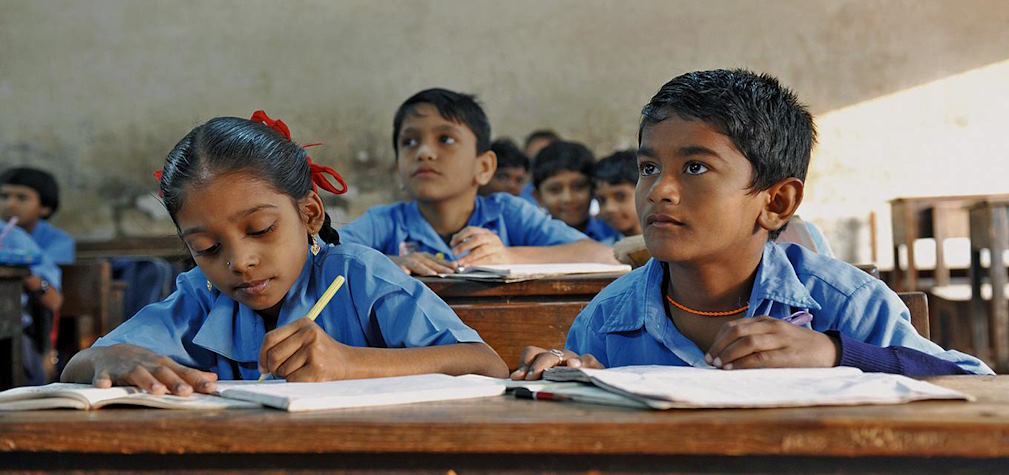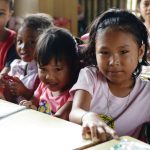The Impact of Education Support on Breaking the Cycle of Poverty

In a world where poverty continues to pose a significant challenge, the power of education support emerges as a beacon of hope, offering a transformative pathway towards breaking the cycle of deprivation. Poverty’s relentless grip on individuals and communities stems from multifaceted factors, trapping generation after generation in a vicious circle of limited opportunities and restricted growth. However, amidst this daunting reality, the undeniable potential of education shines as a force capable of catalyzing positive change and empowering individuals to transcend their circumstances.
Barriers to Education in Impoverished Communities
Access to education is a fundamental human right and a powerful tool for breaking the cycle of poverty. However, in impoverished communities, numerous obstacles stand in the way of fulfilling this basic right. These barriers not only deprive individuals of opportunities but also perpetuate the cycle of deprivation. Understanding and addressing these challenges is crucial to creating a more inclusive and equitable education system.
- Economic barriers, such as exorbitant school fees and related expenses, present significant hurdles for families struggling to make ends meet. In impoverished communities, the cost of education can be prohibitive, forcing many children to forego formal schooling in favor of contributing to household income.
- Social and cultural factors also play a pivotal role in hindering access to education. In some communities, traditional beliefs or gender norms may prioritize early marriage or child labor over schooling. This perpetuates a cycle where education is seen as a luxury, rather than a necessity, further marginalizing vulnerable individuals.
- Inadequate infrastructure and limited resources are equally critical obstacles. Impoverished communities often lack well-equipped schools, safe transportation, and basic educational materials, making learning environments less conducive to academic success.
- The impact of these barriers extends far beyond the individual, affecting the entire community’s development. Limited access to education hampers economic growth and social progress, reinforcing the cycle of poverty for generations to come.
Types of Education Support Programs
In the pursuit of breaking the barriers that hinder access to education, various types of support programs have emerged, offering a glimmer of hope to those yearning for knowledge and empowerment. These initiatives play a pivotal role in nurturing a generation of well-educated individuals who can positively impact their communities and break free from the shackles of poverty.
- Government initiatives and policies stand at the forefront of efforts to improve access to education. Through strategic planning and investment, governments can make education more accessible and affordable for all. Scholarships, subsidies, and free school programs are just some examples of measures taken to ensure that financial constraints do not deter eager learners from seeking education.
- Non-governmental organizations (NGOs) also play a crucial role in supporting education in impoverished communities. These dedicated organizations work tirelessly to bridge the gaps left by government initiatives. By providing resources, building schools, and training teachers, NGOs empower communities to take charge of their educational destinies.
- Innovative programs, such as scholarships, mentorship, and tutoring, have proven to be game-changers in promoting education. Scholarships create opportunities for talented individuals who lack financial means, while mentorship and tutoring provide personalized support, nurturing students’ potential and boosting academic performance.
The Impact of Education Support on Breaking the Cycle of Poverty
Education support holds the transformative power to break the cycle of poverty, leaving a lasting impact on individuals and communities alike. Studies consistently demonstrate that individuals who receive education support, such as scholarships or vocational training, experience long-term benefits that extend far beyond their academic years. Higher educational attainment leads to increased earning potential and better job opportunities, allowing individuals to lift themselves and their families out of poverty. Moreover, educated individuals tend to have better health outcomes, and they are more likely to invest in their children’s education, creating a positive ripple effect across generations.
Beyond its impact on individuals, education support plays a pivotal role in driving economic growth and social development. Well-educated individuals become valuable contributors to the workforce, fostering innovation, productivity, and competitiveness in the job market. This, in turn, boosts economic development at both local and national levels, ultimately reducing poverty rates. Education support programs also promote social cohesion and reduce inequality by empowering marginalized groups to participate actively in society and the economy.
An essential aspect of the impact of education support is the positive feedback loop it creates within communities. Educated individuals are more likely to give back to their communities by becoming leaders, mentors, and advocates for change. They play a vital role in addressing local challenges and initiating community-driven development projects. By raising the overall education levels in a community, a culture of learning and progress is fostered, inspiring others to pursue education as a means of empowerment and growth.

































